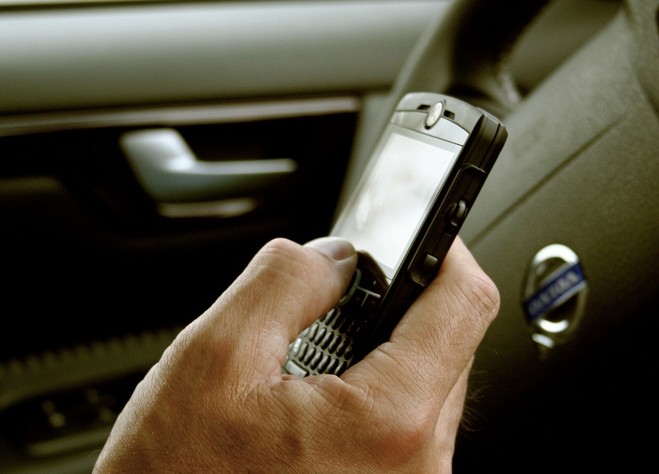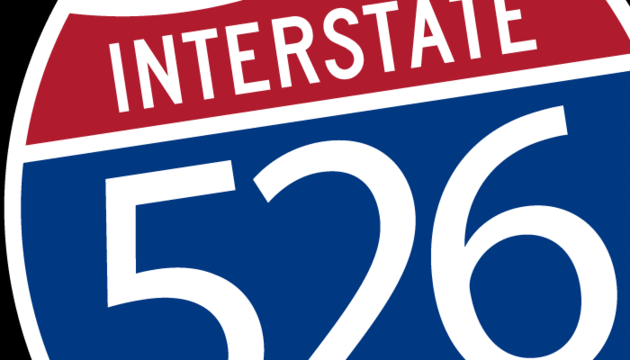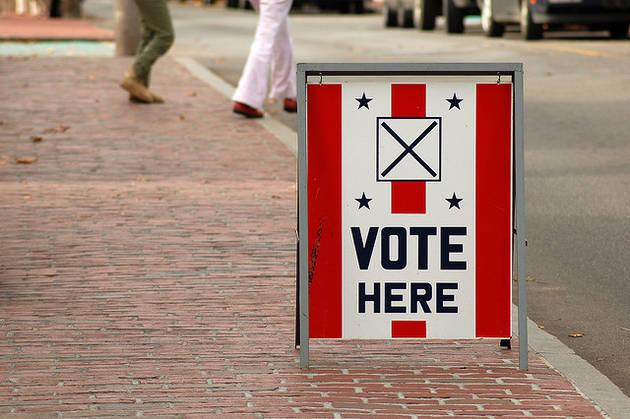
Image by Flickr user Chapendra
It's been a couple of years since South Carolina legislators made a serious attempt to ban texting while driving, but a new bill has returned vigor to the debate.
House Bill 4451 would ban use of text messaging while driving a vehicle — though "electronic messaging" — as the bill calls it — would still be permitted when the car is stopped and the bill would prohibit activities only related to messaging, so presumably it would still be OK to scrub through your iPod track list.
Offenders of the bill could be fined up to $150, but the misdemeanor charge would be prohibited from being reported to insurance agencies or being tracked in the state motor vehicle offender lists.
That bill passed 93-15 in a House vote.
However the bill still needs approval by the Senate, who in 2010 let a similar ban die. The Post and Courier has penned a bit of advocacy for the 2012 incarnation of the ban and tries to call out Senate members for not stepping up to tackle cell phone texting.
Also, the bill would need support from Governor Nikki Haley, who has yet to lend her support to the idea.
You can read the full bill over here, or the meaty bits below:
STATUS INFORMATION
General Bill
Sponsors: Reps. Bowen, Whipper, Bikas, Sottile, Herbkersman, D.C. Moss, Allison, Parker, Huggins, Bowers and HearnIntroduced in the House on January 10, 2012
Last Amended on March 7, 2012
Currently residing in the SenateSummary: Use of cell phone while driving
HISTORY OF LEGISLATIVE ACTIONS
Introduced by Reps. Bowen, Whipper, Bikas, Sottile, Herbkersman, D.C. Moss, Allison, Parker, Huggins, Bowers and Hearn
A BILL
TO AMEND THE CODE OF LAWS OF SOUTH CAROLINA, 1976, BY ADDING SECTIONS 56-5-3890, 56-5-3895, AND 56-5-3897 SO AS TO PROVIDE THAT IT IS UNLAWFUL FOR A PERSON TO USE AN ELECTRONIC COMMUNICATION DEVICE WHILE DRIVING A MOTOR VEHICLE UNDER CERTAIN CIRCUMSTANCES, TO PROVIDE A PENALTY, AND TO PROVIDE FOR THE DISTRIBUTION OF MONIES COLLECTED FROM FINES ASSOCIATED WITH VIOLATIONS OF THESE PROVISIONS; AND TO AMEND SECTION 56-1-720, RELATING TO THE ASSESSMENT OF POINTS AGAINST A PERSON'S DRIVING RECORD FOR CERTAIN MOTOR VEHICLE VIOLATIONS, SO AS TO PROVIDE THAT POINTS MUST BE ASSESSED AGAINST THE DRIVING RECORD OF A PERSON CONVICTED OF IMPROPER USE OF AN ELECTRONIC COMMUNICATION DEVICE WHILE DRIVING A MOTOR VEHICLE.
Amend Title To Conform
Be it enacted by the General Assembly of the State of South Carolina:
SECTION 1. Article 31, Chapter 5, Title 56 of the 1976 Code is amended by adding:
"Section 56-5-3890. (A) For purposes of this section:
(1) 'Electronic communication device' means an electronic device, including, but not limited to a wireless telephone, personal digital assistant, a text messaging device, or a portable or mobile computer while being used for the purpose of composing, reading, or sending an electronic message, but does not include a global positioning system or navigation system or a device that is physically or electronically integrated into the motor vehicle.
(2) 'Electronic message' means a self-contained piece of digital communication that is designed or intended to be transmitted between physical devices. 'Electronic message' includes, but is not limited to electronic mail, a text message, an instant message, or a command or request to access an Internet site.
(B) A person may not use an electronic communication device to compose, send, or read an electronic message while operating a motor vehicle on a roadway.
(C) This section does not apply to a person operating a vehicle while:
(1) off the traveled portion of a roadway;
(2) using an electronic communication device in hands-free, voice-activated, or voice-operated mode;
(3) activating or deactivating an electronic communication device or an internal feature or function of the device not associated with electronic messaging;
(4) summoning medical or other emergency assistance;
(5) an operator of a commercial motor vehicle reading a message displayed on a permanently installed communications device designed for a commercial motor vehicle with a screen that does not exceed ten inches tall by ten inches wide inside;
(6) a law enforcement officer, firefighter, emergency medical technician, or other public safety official while in the performance of the person's official duties; or
(7) the vehicle is stopped, parked, or not in motion.
(D) A person who violates this section is guilty of a misdemeanor and, upon conviction, must be fined not more than one hundred fifty dollars and the conviction may not be reported to the offender's motor vehicle insurer nor may it be included in the offender's motor vehicle records maintained by the department of motor vehicles or in the criminal records maintained by the state law enforcement division.
(E) This section preempts local ordinances, regulations, and resolutions adopted by municipalities, counties, and other local government entities regarding persons using hand-held and hands-free wireless electronic communication devices while operating motor vehicles on the public streets and highways of this State.
(F) Nothing in this section is intended to conflict with enforcement of applicable restrictions or requirements imposed on commercial motor vehicle operators pursuant to the federal Motor Carrier Safety Regulations.
(G) Notwithstanding another provision of law, information contained or stored in an electronic communications device is not subject to a search by a law enforcement officer incident to a lawful custodial arrest except pursuant to the provisions of Section 17-13-140 providing for the issuance, execution, and return of a search warrant or pursuant to the express written consent of the person subject to the lawful custodial arrest or other lawful owner of the device.
(H) A law enforcement officer may not issue a citation to a driver or a passenger for a violation of this section when the stop is made in conjunction with a driver's license check, safety check, or registration check conducted at a checkpoint established to stop all drivers on a certain road for a period of time, except when the driver is cited for violating another motor vehicle law.
(I) A violation of this section is not negligence per se or contributory negligence, and is not admissible as evidence in a civil action.
(J) A vehicle, driver, or occupant in a vehicle may not be searched, nor may consent to search be requested by a law enforcement officer, solely because of a violation of this section.
(K) A law enforcement officer may not stop a driver for a violation of this section except when the officer has probable cause that a violation of this section has occurred based on his clear and unobstructed view of a driver or an occupant of the motor vehicle who is violating the provisions of this section.
(L) A person charged with a violation of this section may admit or deny the violation, enter a plea of nolo contendere, or be tried before either a judge or a jury. If the trier of fact is convinced beyond a reasonable doubt that the person was violating the provisions of this section at the time of the incident, the penalty is as provided in this section. If the trier of fact determines that the State has failed to prove beyond a reasonable doubt that the person was violating the provisions of this section, no penalty may be assessed.
(M) A person found to be in violation of this article may bring an appeal to the court of common pleas pursuant to Section 18-3-10 or Section 14-25-95."
SECTION 2. Article 31, Chapter 5, Title 56 of the 1976 Code is amended by adding:
"Section 56-5-3895.(n) Notwithstanding another provision of law, information contained or stored in an electronic communications device is not subject to a search by a law enforcement officer incident to a lawful custodial arrest except pursuant to the provisions of Section 17-13-140 providing for the issuance, execution, and return of a search warrant or pursuant to the express written consent of the person subject to the lawful custodial arrest or other lawful owner of the device."
SECTION 3. Article 31, Chapter 5, Title 56 of the 1976 Code is amended by adding:
"Section 56-5-3897. Monies received by the Trauma Care Fund pursuant to 56-5-3890 and 56-5-3897 must be deposited with the city or county treasurer, as applicable, for remittance to the State Treasurer. The State Treasurer shall deposit the Trauma Care Fund surcharge in the South Carolina State Trauma Care Fund. The Trauma Care Fund surcharge must not be used by the Department of Health and Environmental Control for the payment of the department's administrative or operating expenses or for any purpose other than providing financial aid to participating trauma care providers and grants related to trauma care in this State. The Trauma Care Fund surcharge is not subject to the provisions of Section 44-61-520(G)."



